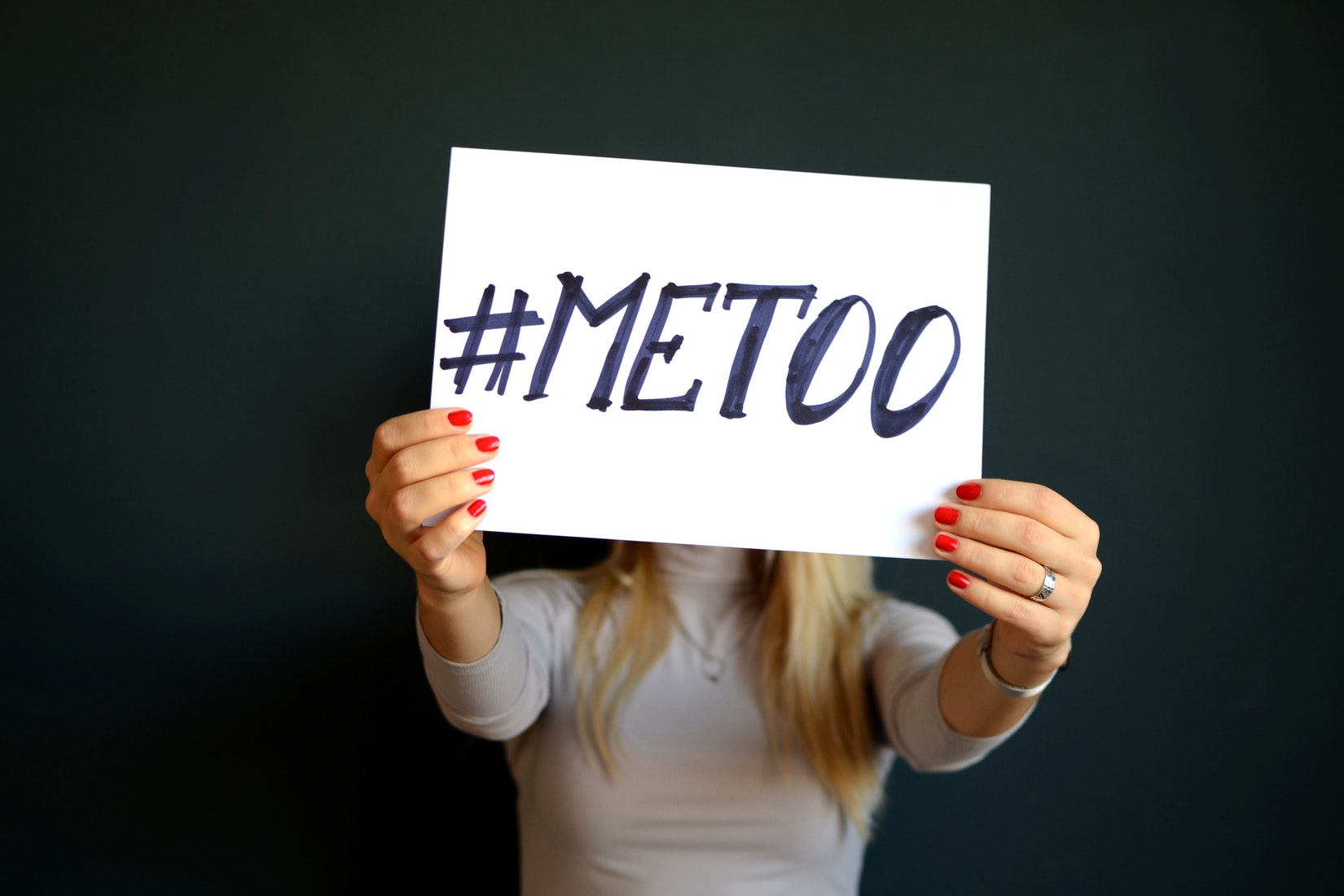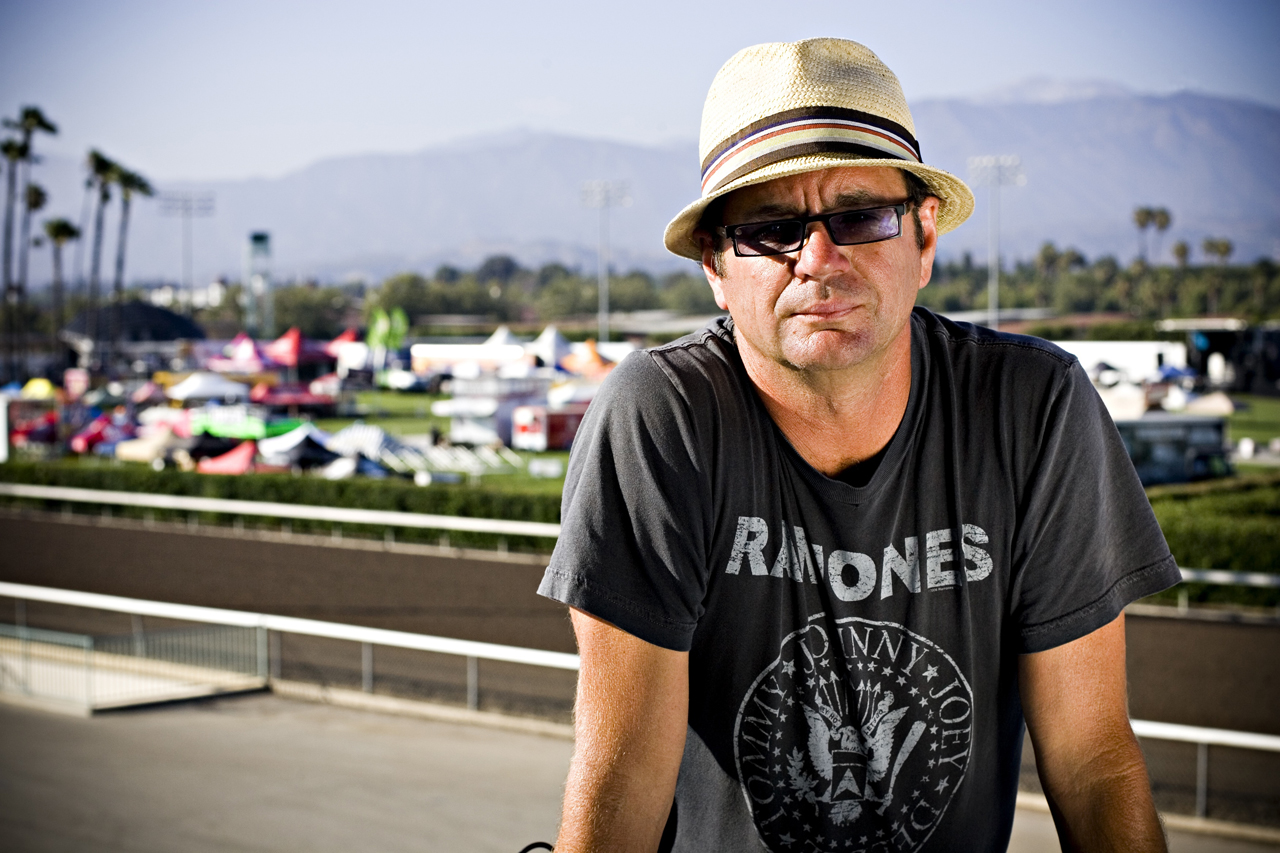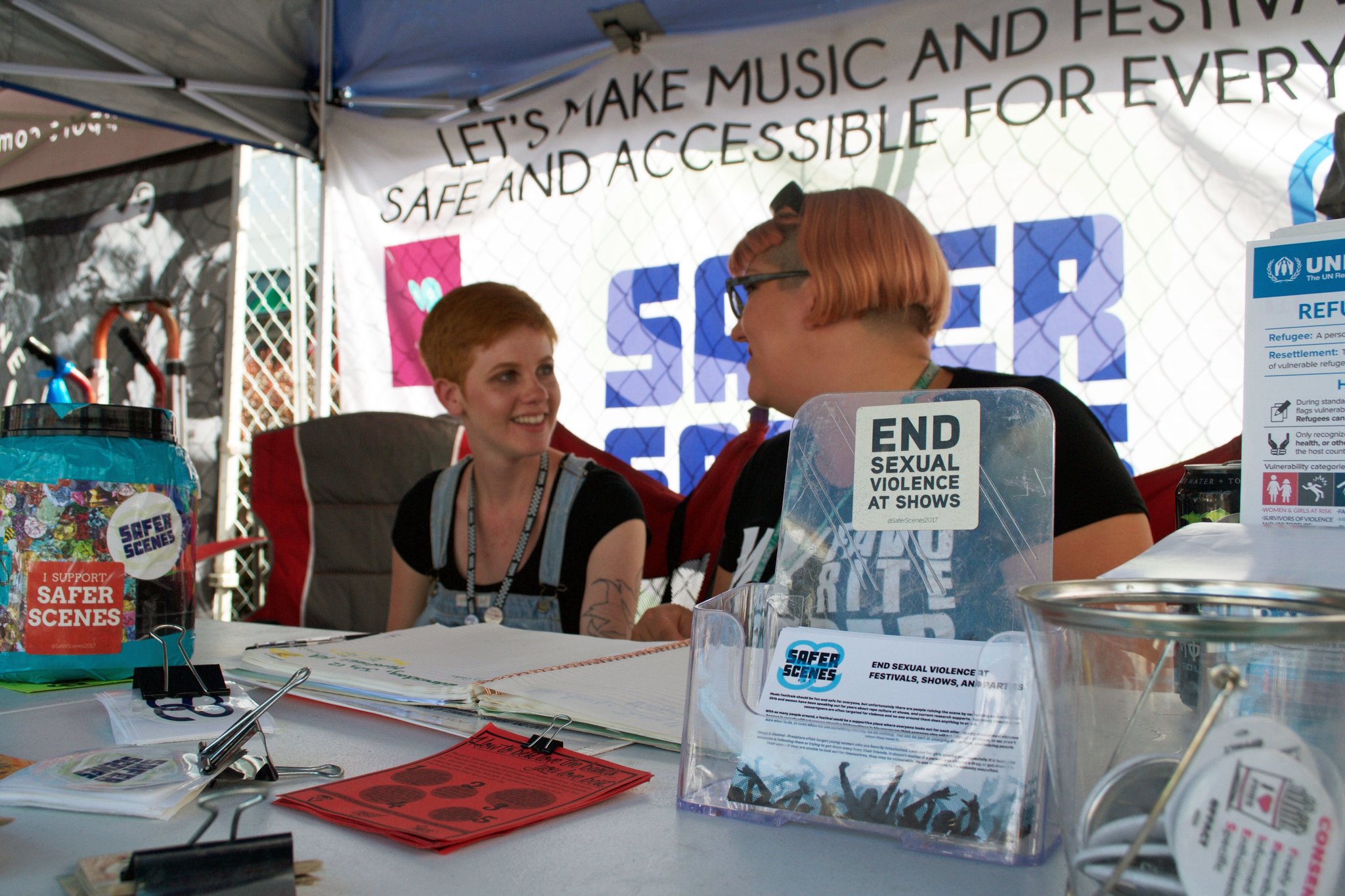
Many people turn to music as a place of belonging, community, and escape but what happens when this place gets tarnished by trauma? The last few months have been a reminder that abuse and harassment is too common in society. For too many people—those who work in music and fans alike—sexual harassment has become part of the experience and we need to talk about it. In this three part series we are going to try to open the dialogue:
Note: For most of this series we focus on women and abuse, harassment or discrimination. Everyone—no matter what gender—can experience harassment, but in an industry mainly run by straight men, women are most commonly the subjects.
DON’T WE HAVE THE RIGHT TO WRITE?
Journalism can be bittersweet. Music journalists are constantly meeting artists, crew, management. Behind-the-scenes access creates a certain level of familiarity. When these types of working relationships are good they’re great but when they’re bad it’s really bad. So bad, in fact, former music journalist Carolyn Vallejo gave up her career in journalism because of the way she was treated. Her blog post ‘Am I Overreacting?’ expresses the worry that harassment is just part of the job.
I gave up on music journalism #metoo
— Carolyn Vallejo (@clynvallejo) October 16, 2017
In her blog post, Vallejo talks about the mistaken belief that advances from band members, management, and security meant she was doing well. “I equated sexual advances, requests for numbers and dates, and straight-up sexual harassment as proof that I was worthy of the attention of players in this notoriously cutthroat industry.” Then came the sobering realisation, “These men wanted my body, not my professionalism,” she writes. “And as soon as I took my body away from them I had no professional self-esteem left to keep pushing myself into an industry that continually told me I would have to flirt with the lead guitarist and endure ass-grabs to get a writing gig…” Afterward, once Vallejo shut these men down opportunities stopped arising.
Aside from writers, there are a growing number of female photographers in music. Ashley Osborn tweeted a statement discussing how people don’t believe women when they come forward, writing, “How can you deny these allegations are real? How can you say behavior like this doesn’t happen? … I’ve had my ass grabbed [by] security guards and venue staff, I have had inappropriate things said to me on a job time and time again, I have been made to feel incredibly uncomfortable on my bus on tour just sitting there editing and working on a laptop.” As Ashley stated, some people don’t see the problem with her experiences—the actions of those men have become normalized via repetition over the decades. She goes on to say she is not ready to discuss all her experiences. This is her right.
Respect to women. Now. pic.twitter.com/n390ujCT0H
— Ashley Osborn (@ashleyophoto) November 27, 2017
The #MeToo movement has been amazing for so many reasons but if the time isn’t right that’s not a problem—it is important that people come forward when they feel comfortable. Jamie Sivrais, founder of A Voice For The Innocent, a non-profit which works with survivors of sexual assault and abuse, emphasises, “It is 100% [the survivor’s] decision, and they have every right to make it. I’d remind them that they don’t have to do or say anything they aren’t comfortable doing or saying. Sometimes when someone experiences sexual violence, they feel that control has been taken from them, but this decision is all in the hands of the person coming forward.”
POWER TO THE ABUSER??
One of the most surprising revelations is many people are unaware of how often sexual harassment happens. Some are surprised by the predatory nature of the industry, when for many others it’s an everyday reality. A lot of harassment comes from an imbalance in power dynamics and abuse of power is not a gendered issue. Guitarist Macy Santa Maria has spoken about being sexually assaulted by singer Rachel Taylor while on tour with He Is We. Maria says Taylor, whilst drunk, began grabbing her aggressively. Her statement reads, “My objective is to shed a little light on sexual assault, that a man or WOMAN is capable of committing [it].” After battling with the decision to speak up, Maria could not keep the assault to herself. Straight away the other band members ensured her safety and the booking agent took He Is We off the tour. Maria’s case shows that musicians are also vulnerable to assault.
Another example which shows how a high profile and well-documented perpetrator of sexual assault can go relatively unpunished is that of R. Kelly. Kelly notoriously married the late singer Aaliyah when she was only fifteen and he was twenty-seven. To this day, he has consistently taken advantage of underage girls. There was a sex tape which showed him having sex with and urinating on a fourteen year old girl, which should have also been enough to prove he is a predator but somehow he escaped prison. For over twenty years the R&B singer has been accused of sexual assault and misconduct with a long list of allegations but until recently little had been done to stop him.
We demand appropriate investigations and inquiries into the allegations of R. Kelly’s abuse. #MuteRKelly #TIMESUP pic.twitter.com/T1Rj6DzhYK
— Lupita Nyong’o (@Lupita_Nyongo) April 30, 2018
That was until people finally realised the way to stop these abusers is to stop celebrating them. As the Mute R Kelly movement explains, on top of the accusations already mentioned, he is also guilty of possessing over twenty recordings of child sex pornography in his home, which finally led to indictments, “We don’t need the courts to find him guilty,” they explain, “for us to know that he is a serial sexual abuser. The evidence is there whether or not the legal system is able to effectively use it for a conviction.” The majority of Kelly’s victims are women of colour, who are too often silenced and forgotten when discussing the problem of sexual assault. The aim of the movement is to get people to stop playing (and thus paying) R. Kelly and take his platform out from under him.
Similarly, a sign that we might be on the brink of change is the fact that Spotify announced it would be removing Kelly’s music from its “curated and algorithmically generated playlists”. Although the music is still available on the platform, it’s an—albeit small—step forward. You do, of course, have skeptics who think that it is just a PR move but the true intent and consequences, if any, remain to be seen.
Normally those in power are protected. Their ability to intimidate and control others keeps them safe. So to see thousands of people fighting the system is a moment of cautious optimism.
WHY PROTECT ABUSERS?
For bandmates, it can be difficult to call out your friend for monstrous behaviour. Likewise, management clearly wants to avoid the shit-storm that comes from outing these predators. Choosing the path of least resistance over the safety of others is an inarguably awful move—taking action is difficult but necessary.
In 2017 Austin Jones, a YouTuber/musician, was arrested for child pornography. He targeted his young female fans, coercing them to send him explicit videos. The details of this case are truly disgusting. Jones was going to be a featured YouTuber during Vans Warped Tour 2015 when fellow YouTuber Damon Fizzy outed his behavior to the public. In response, according to Fizzy, he was shunned and nearly kicked off Warped Tour himself for “defamation”. Petitions began to circulate to get Jones removed from the tour and Warped’s organiser Kevin Lyman told Alternative Press, “…In the court of the internet, people’s lives are being dragged out in front of the world with no due process. People throw very strong words out onto the internet and when it is old news to them, it leaves a trail of destruction in other people’s lives. This country was built on the concept of ‘innocent until proven guilty.’…I am actively encouraging that if women and girls feel they are being victimized, tell your parents, go to the police, talk to counsellors.”

Photo: Chad Sengstock
Earlier this year, when we spoke to Lyman he looks back at the situation differently. He explains that back then he had twenty-five or so people—whom he trusted—telling him Jones was a “good guy.” Lyman sees Jones, and people like him, as manipulators. Anyone can be tricked by them, “…basically, in a horrible perverted way, [abusers] are con-artists—they’re like Bernie Madoff but in a sexually perverted way. Bernie Madoff kept stealing billions of dollars from people and you go: How did so many people not know that he was stealing their money? Because con-artists make us feel good about ourselves, they know how to manipulate people. You know, the one time I sat down with Austin he came across like a great human being—he was telling me exactly what I wanted to hear, acting in this perfect way, and [then] he goes home and starts manipulating young girls.” After looking into the facts, Lyman chose to take Jones off the tour before it started.
Jones’s manipulation became clear in 2017, when the evidence came out in court. He had told underage girls they were “so lucky” to be talking to him, getting them to “prove” they were his biggest fans, and asking them to state their age and undress or dance on camera. To one victim he said, “In your honest opinion, do you think your butt is good enough to give guys boners?… It hasn’t given me a boner yet. That’s why I’m concerned.” This is a man in his twenties manipulating a child. That’s not even the worst of it, the court documents are harrowing but if you are interested you can see them here. Fair warning, they are disturbing.
I’m so glad Austin Jones was finally caught. I’m sorry to anyone who has been creeped on by him and put into shitty situations.
— Damon Fizzy␌ (@deefizzy) June 13, 2017
To clarify his initial hesitation, Kevin Lyman believes in getting all the information before making any decisions, “I think it’s getting the facts, we do live in a country where there should be some sort of due process—that’s what I have to do. If you look at social media, everyone is accused of something. I think I’ve been accused of pro-life, I’ve been accused of being a misogynist when I hire more women in the music business than probably anyone ever has in the music industry, percentage-wise. So when people accuse you of all kinds of things all the time and you know they’re not true, when you read someone else accusing someone else I do give them the benefit of the doubt until I find out all the information I can. And then try make the most sound decision.”
CONSENT IS CONSCIOUS
There are people who go to shows with the sole intention of sleeping with band members and that is their choice. As long as they are old enough and sober enough to consciously make a choice. But the person who has more power in a sexual encounter has greater responsibility—there is no denying this. Does this mean celebrities and executives need to make sure the person they’re pursuing consents? YES. This goes for every sexual encounter. If one person is the older one, the more sober one, the more famous one, the more powerful one, the more confident one and so on, they should take extra precaution to ensure consent.
This perspective and the demand for accountability and punishment for abusers is being deemed a “witch hunt” or an unfair attack on men. It’s not. It’s a call to action for us to all start doing the right thing. The rate at which assault happens is not something we can ignore. Simply because it’s happening all at once and it seems annoying or painful for you, imagine how exhausting it is for someone to be the victim of assault and have to relive it day after day.
BUT DID YOU REALIZE…?

Photo credit: Lucy Westcott. Left: Autumn Lavis / Right: Kira-Lynn Ferderber
Many people are trying to bring awareness to the harassment behind-the-scenes of the music industry. Autumn Lavis, a merchandise and tour manager, is also a coordinator for Safer Scenes—an organisation that aims to end sexual violence and discrimination at shows and festivals. Safer Scenes took part in the Vans Warped Tour in 2017 and Lavis describes the project as “overwhelmingly positive.” They created a safe space where people could share their experiences. Autumn goes on to say that those who didn’t realise assault happened at shows were, “…receptive to learning and becoming more aware.” Lavis also explained that harassment happens a lot more than people think, especially to “those of more marginalized identities, such as queer trans women of color,” which is why projects like Safer Scenes and A Voice For The Innocent are so important. The project included workshops to teach people how to intervene and how bands can prevent sexual assault. “Many bands like Anti-Flag, Creeper, and Bad Cop / Bad Cop attended. I think in total, Kira-lynn [my Safer Scenes partner] and I trained about fifty people who were working or performing on the tour, but because it wasn’t mandatory we couldn’t reach everyone. I would like to see comprehensive training of the sort be required by labels, management, and those running festivals and taught to bands and show security. Basically this knowledge would be beneficial to anyone in any facet of music. It quite literally could save someone’s life.”
Throwback to teaching sexual assault prevention & bystander intervention this summer on Vans Warped Tour. pic.twitter.com/wmbEB3ouvU
— Professional Punk (@AutumnLavis) November 9, 2017
Jamie Sivrais of A Voice For The Innocent also believes that part of the key to moving forward is being receptive to those whose stories aren’t always heard, “Listen to the stories of people who aren’t straight white men. The scene is a much different experience for women. For LGBTQ+ folks. For people of color. They’ve been telling us this for years and years now, and it seems that finally some people are listening. Music is meant for everyone and it should be an environment where all people can come and belong to a community without being worried about their own safety. As someone who belongs to straight white man category, I can’t directly say what other peoples’ experiences are, but I can say what I’ve heard.”
Lavis reflected on working in the industry for nearly seven years. “I have on several occasions felt so frustrated and discouraged that I wanted to quit music. I know that there are men that don’t like to see non-male identifying people succeed or exist in music. Instead of giving into that, I use it as fuel to persist in spite. I’m here to pave the way and make it easier for other people of underrepresented identities to be involved in this industry.”
DO FALSE ALLEGATIONS HAPPEN?

Photos: Jamie Sivrais
Of course, there’s the everlasting rebuttal, “But false allegations happen” …Yes, on occasion that is true. Regretting sleeping with someone does not mean they assaulted us. False assault claims are dangerous, not only because they ruin innocent lives but also because they negatively impact real cases of abuse. But, and this is a big but, no instance of a false claim should take away from the very real problem. Many do not report because they don’t want to be known as victims of assault; the stigma, judgement, and public dissection of one’s character is an awful thing.
Sivrais explains “almost all sources determine that false allegations of sexual assault make up only 2-8% of all sexual assault allegations.” A sentiment which Lyman echoes, “Similar to some of what we’ve seen in Hollywood recently. Groups of people coming together. The benefit of the doubt tends to go when the first accusation comes out but when there’s groups of people that come out, when you can start collaborating a story and noticing a pattern where this behaviour becomes habitual, that person needs to be removed from society.”
The vast majority of people aren’t going to accuse someone of something as serious as rape if it didn’t happen. Once a survivor comes forward, they have to relive their trauma which is the last thing anyone would want. Listen to survivors.
WHAT HAPPENS NOW?
Society needs to CHANGE. We have to take ACTION. In cases of celebrities who abuse others and go without legal repercussions we have to hit those abusers where it hurts: In their wallets. We must STOP giving awards to abusers. STOP protecting their “bright futures”. STOP putting them on magazine covers. STOP booking them for tours. STOP buying their music. There’s no longer the option to turn a blind eye. Let’s start a conversation, give a voice to survivors, and be part of the solution.
—
From the author: This article only scratches the surface. Now that we have examined the problem, in the next part of this series will take a look at what we can do to make a change. We will talk about the organisations and artists already taking a stand, as well as what we as individuals can do.


